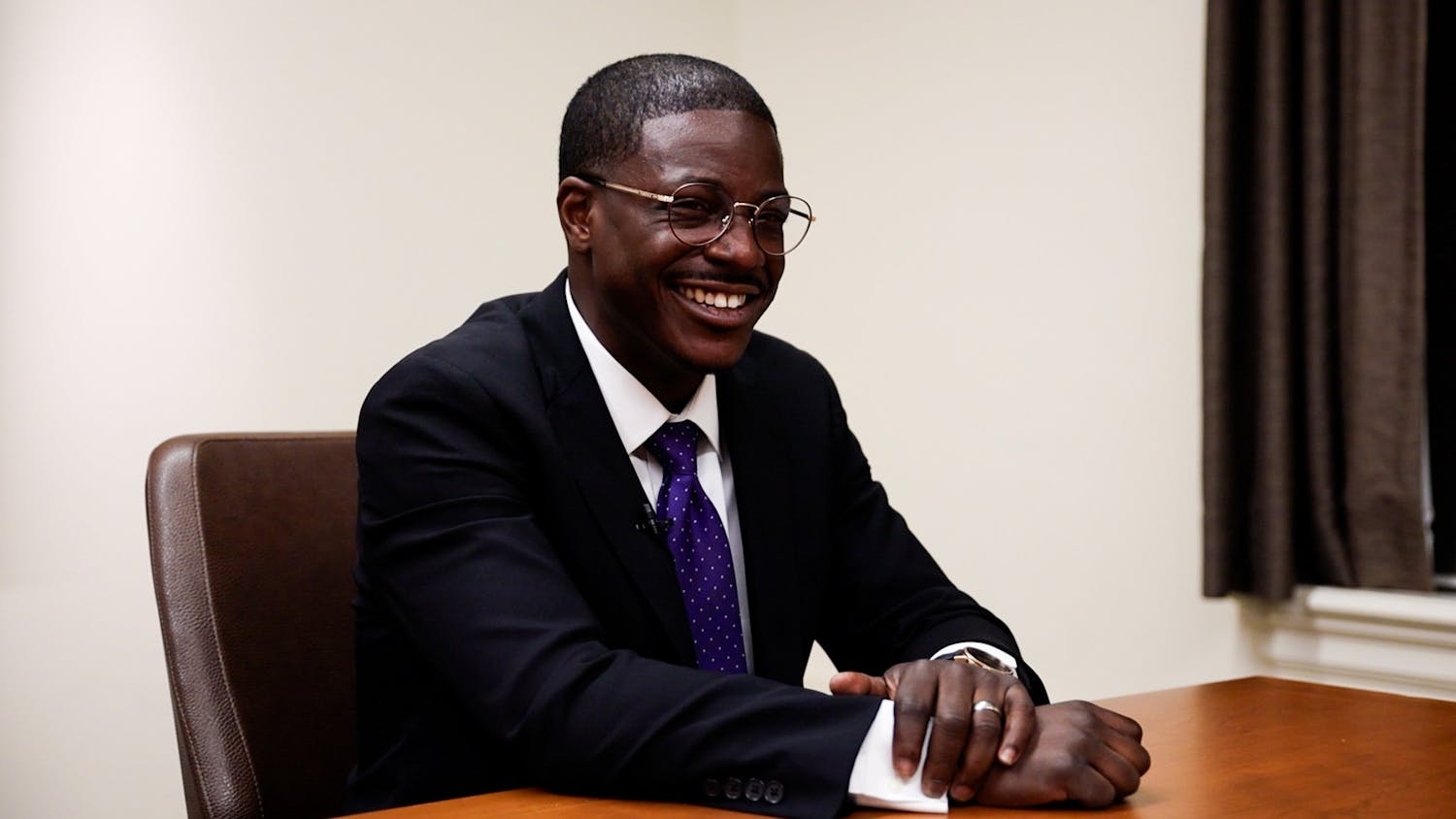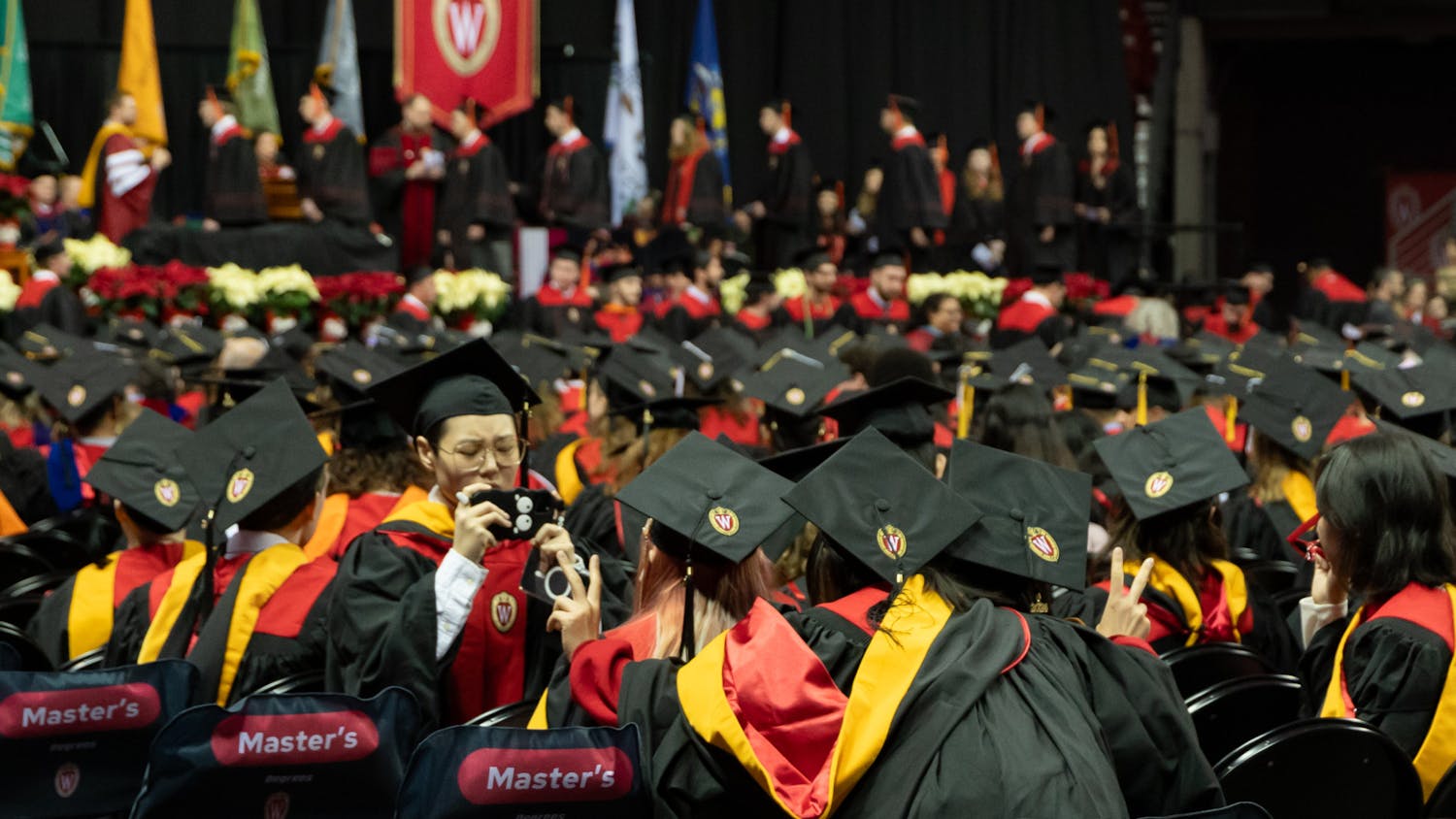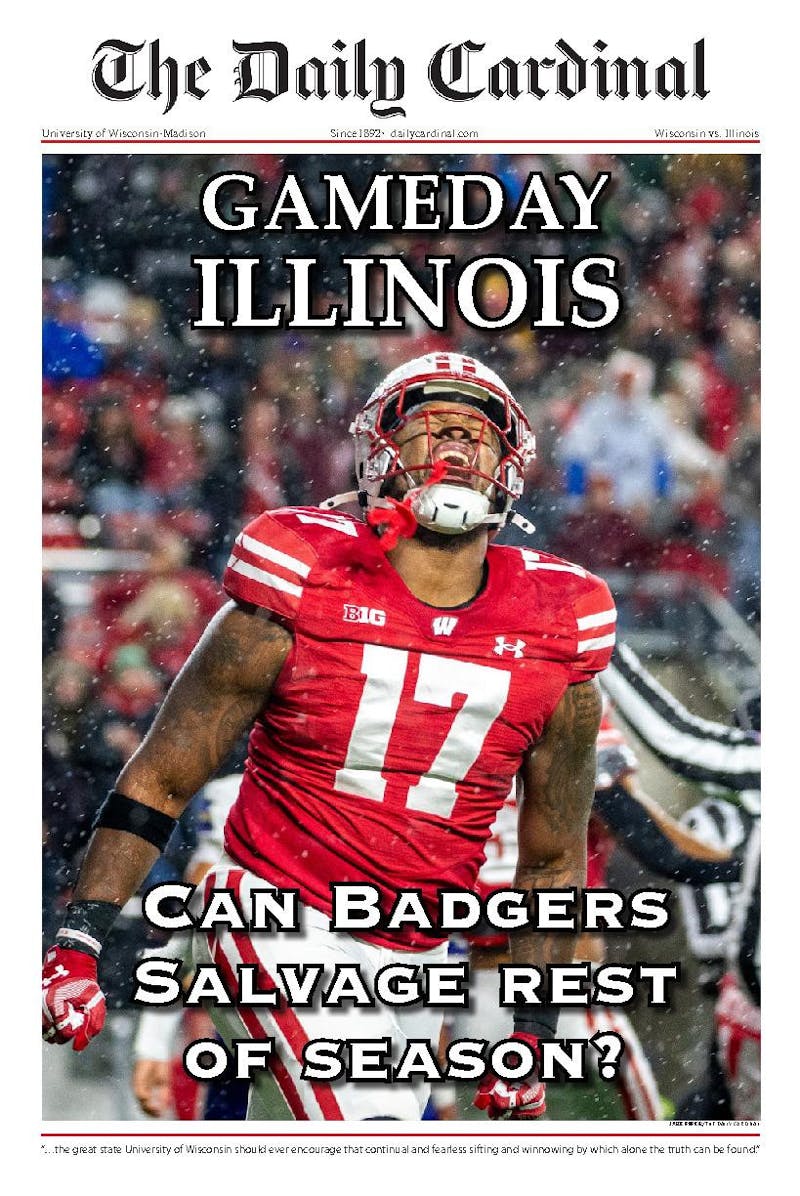Spring is finally in the air, which is a reason for long-distance athletes getting ready to compete in marathons and triathlons to celebrate. However, long before the races start, athletes will have established a healthy diet to help them in their workouts.
According to UW-Madison food science lecturer Monica Theis, people don't realize that recommended foods for athletes in training aren't much different than the foods that make up a balanced diet for non-athletes.
One difference Theis stated is that ""athletes have the luxury to eat more.""
Tim Gattenby, associate faculty in the kinesiology department who teaches a triathlon training class at UW-Madison, said an athlete's well-balanced diet should consist of protein, carbohydrates and fats.
Gattenby explained that carbs are the fuel the body uses first during exercise. UW-Madison junior Toni Bratager said she agreed and added that for an athlete in training, carbs should make up 60 to 70 percent of the athlete's diet.
Bratager, a long-distance athlete and a dietetics and kinesiology student, said that it is beneficial for athletes to eat more complex carbs, which will burn slower and prolong energy during a race.
According to UW-Madison nutritional sciences professor Dale Schoeller, carbohydrates are stored in the form of glycogen in the liver and muscles. The glycogen is then released as glucose and provides the body with needed energy.
Nutritional sciences professor Susan Nitzke recommended whole grain bread and other foods high in fiber for athletes in training who need to eat complex carbs.
Pasta is a staple in the diets of most athletes and full of carbs. According to Lisa Michl, president of the UW-Madison Running Club, pasta is a food she craves when she is in training. However, she said it is difficult to keep the amount of carbs in her diet so high while also getting nutrients from other foods.
""I personally do 50 percent [carbs],"" Michl said.
Bratager cautioned that ingredients added to pasta can take away from its nutritional value.
""Pasta's good, but make sure you're having whole grain pasta with some kind of vegetable sauce,"" she said.
In the days leading up to an event, it is recommended that athletes eat even more carbs in order to build up energy stores. This process is known as ""carbohydrate loading.""
UW-Madison senior Kris Short said he usually practices carb loading for a week before an event, during the time period known as the ""taper phase.""
Gattenby said he agreed and recommended a ""14-day taper with a week of carbohydrate loading and super hydrating.""
If an athlete is not a fan of pasta, Bratager emphasized that fruits and vegetables are another great source of carbs. In addition, they have a low glycemic index, which means they are low in sugar. Bratager advised against foods with a high glycemic index because the energy provided is used up quickly after the nutrients enter the bloodstream.
Gattenby stressed the importance of fat because ""you get double the caloric burn out of a gram of fat than you do out of carbs and protein."" He added that, with training, the body becomes better able to utilize the athlete's ""gold bar.""
Schoeller said that an athlete's fat intake should be kept between 25 and 30 percent. Since fat acts as a padding for the joints and muscles, Bratager said it is not necessary to stick to low-fat foods if the right kinds of fat are eaten.
""You want to steer clear of saturated fats and trans fats,"" Bratager said.
Instead, athletes should aim for foods containing mono and poly-unsaturated fats. One type of poly-saturated fat, omega 3, is especially beneficial and can be found in fish and peanuts.
Another important nutrient is protein, which helps to prevent injury in the muscles, and iron, which increases oxygen flow.
Since a lot of athletes eat healthy in the off-season, many don't need to drastically change their diets during training.
Michl said she tries to stay away from desserts and snack foods full of empty calories when she trains. Other than that ""I just eat what I've normally been eating,"" she said.
""I will have caffeine and alcohol once in awhile, but definitely in moderation,"" said Jackson Potter, a UW-Madison graduate student training for a triathlon in April and the Madison Marathon in May.
Potter said he avoids fast food and candy but will allow himself something sweet every day.
Gattenby said it is important to stay away from fibrous foods the day of the race because they can irritate the gastrointestinal system, which acts differently when a person is anxious.
He added that tolerance for certain foods is extremely varied from person to person.
""I've raced with people that can eat pork rinds and drink Coke the morning of the race and race fine on it,"" he said.
On the day of the race, Gattenby said, it is better to eat blander foods that an athlete knows will agree with his or her system.
According to Theis, the most important advice is to be aware of what you are eating and not to eat only because the clock says it's time.
""Athletic eating isn't really that much different,"" she said.





